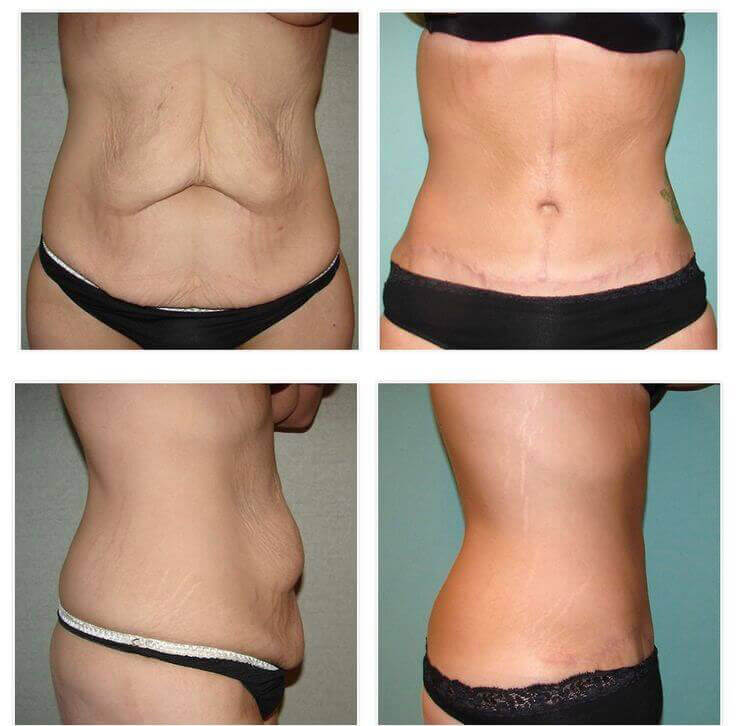
Pain: Incisional pain is usually nearly resolved by the time the patient is discharged from the hospital. Patients commonly have persistent discomfort at the left rib margin, secondary to intra-operative retraction- this is benign but can require 1-3 months to resolve. Ventral Hernia : Approximately 20% of patients will develop an incisional hernia after open GBP, and is much more rare after laparoscopic GBP. This is usually manifested three months or more after the surgery, with patient complaints of midline abdominal pain and a bulge under the incision. Hair Loss: Many patients report that in the 2-4 month time period their hair brush begins to fill up with huge clumps of hair. This hair loss is very common, and is due to a relative protein deficiency. As long as you maintain your protein intake the hair loss will resolve-no patients have yet gone bald due to GBP. Flabby Skin: Unfortunately, skin does not always shrink as fast as you lose weight. This frequently results in bothersome and unsightly folds of skin on the abdomen, thighs, and upper arms.
This extra skin can be removed by plastic surgical procedures. Arranging to have this done by military plastic surgeons is only sometimes possible. 3,800.00 for the abdominoplasty alone. Lactose Intolerance: Dairy products frequently cause cramping and diarrhea after GBP, because the surgery has bypassed the part of the bowel that has most of the enzyme (lactase) necessary for digestion of mild sugar. On the other hand, dairy products are desirable because of their protein content. Patients generally appreciate a substantial improvement in their ability to consume dairy products with the addition of Lactaid, which can be purchased over the counter in drug stores and supermarkets. Patients can also anticipate improvement in milk tolerance over a period of months following surgery, as the bowel adapts to the new nutritional flow. This may be short or long term. Only time will tell. Dehydration: Watch your urine for a dark color or strong odor, or watch for bad taste in your mouth, with nausea. These are signs of dehydration that tell you to drink more.
As a gastric bypass patient, you can become easily dehydrated. Your goal the first day home is to drink a minimum of 42 ounces of fluids. Then increase your fluid intake you intake daily until you are drinking closer to 72 ounces of fluids. Constipation: In the long term you may have difficulty with constipation. This is usually due to relative dehydration and the patient should remember frequent small volume fluid intake. Another option is to purchase over-the-counter products such as Milk of Magnesia, Colace, or Dulcolax, taken as directed. You may also opt for a stool bulking agent such as Metamucil or Benefiber daily. Metabolic Changes: Two to four weeks after surgery, your body reacts to the smaller amount of food. You feel tired, lethargic, and often depressed. Your body wants to slow down until the old food supplies returns. The best way to deal with this is to recognize the symptoms and know they are normal. Start exercising so your body gets used to using body fat as source of energy. As your body adjusts, the hibernation syndrome will end. Hypoglycemia: You may feel lightheaded, shaky, faint, or have a headache.

0 Response to " SAMMC Bariatric Clinic "
Post a Comment